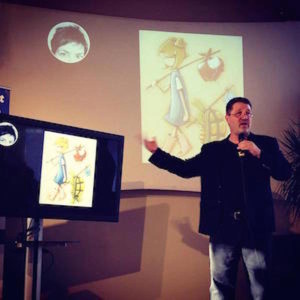
Last week, I returned from the inaugural Pacific Northwest PHP Conference in Seattle, Washington. Like most conferences in the PHP community, there was a strong vibe of getting together with old friends, making some news ones, and enjoying tasty beverages together while we learn cool things.
There were a number of great sessions ranging from Sara Golemon talking about PHP 7 to Phil Sturgeon’s tips on Building Extraordinary Packages to Josh Holmes’ Speaking for Speakers plus the AWS Hackathon plus the Uncon plus.. lots of other stuff but I want to talk instead about how the conference came about.
When you’re putting together a conference the first time, you have a simple scenario:
- You can’t open your call for presenters until you have a date.
- You can’t sell (more than a few..) tickets until you announce speakers.
- You can’t sell sponsorships until you have a venue and date.
- You can’t get a venue and date until you have money for deposits.
- You can’t get money until you sell tickets or sponsorships.
In short, it’s a horrible circular dependency.
The most important part for first year conferences is getting those seed dollars to get things rolling. Some convince their employer to seed it all. Others can float the bill and hope for the best, but that’s risky and terrifying.
To solve this, the PNWPHP team took another approach: the PNWPHP Kickstarter.
And frankly, I think it was a stroke of brilliance.
First, it started to solve the date problem. They were able announce a rough date (September 2015) without having to choose a specific date and venue. This allowed potential speakers and attendees to pencil it in and start budgeting. And then they could start serious conversations with potential keynotes.
But more importantly..
It let them gauge interest. By selling super early bird tickets, they could get a feel for the attendance and support they’d get from the community. Granted, most people buy tickets in the last 60 days before the conference but a ticket sold is a ticket sold. The community support was pretty much a given but by starting it early, they could build buzz.
Finally – and most importantly – it solved the circular dependency. By raising close to $11,000 they could put down those deposits to set the date which allowed them to open the call for presenters and start selling sponsorships which allowed them to pick speakers which allowed them sell tickets which allowed.. you get the point.
Like I said, brilliance.
If you want to put on a conference, don’t just start signing things, fighting to close sponsors, and announcing dates. Considering setting up a Kickstarter to get things moving. At worst, you spend some time and effort marketing something that doesn’t happen. No worries, create a new plan and try it again later.
The best case is that you put together a good conference that people enjoy.

And don’t forget to check out my slides: Building your API Utility Belt or the source material for my “Social Media for Social Evil” uncon session.

